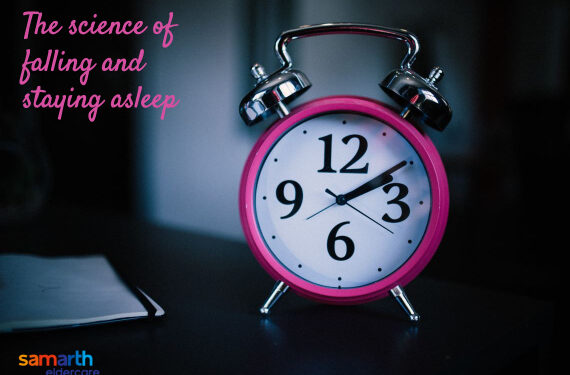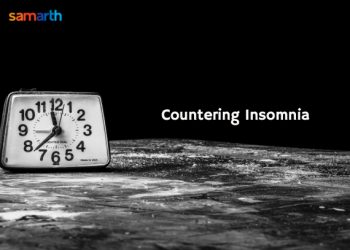Is your sleep cycle different from what it used to be when you were younger? Don’t worry, you are not alone.
Growing old is tied to a variety of health concerns, including sleep difficulties. Nearly half of men and women aged 65 years and above experience at least one sleep problem. So, it is pretty common for seniors to experience changes in the quality and duration of their sleep with age.
Most people find that with age they have a harder time falling asleep. They also wake up more often during the night and earlier in the morning. They might feel tired during the day and even feel the need to take a nap or just lie down.

Join Now >
How sleep changes with age
As we age, our body produces a decreased amount of two important hormones – the growth hormone and melatonin. When this happens, it results in a decrease in slow-wave or deep sleep and leads to a more fragmented sleep with more wakeful moments during the night.
Our total sleep time, its efficiency, and total deep sleep (slow-wave sleep) decrease as the years pass by. We also spend an increasing amount of time staying awake at night. This is why, with age, many of us consider ourselves light sleepers.
What causes sleep problems with age
There are several factors that can affect the quality and quality of sleep at night and sometimes there is more than one cause at play.
- Irregular schedule: When you sleep and wake up at irregular times, it affects your body’s internal clock. This can result in difficulty with falling asleep and waking up groggy and tired the next day.
- Pain: Arthritis, joint problems, diabetes, and other age-related conditions can cause pain that wakes you up at night. In some cases, physical therapy can help with the pain, and for others, medication or surgery may be necessary.
- Medication: Some medicines make it harder to fall or stay asleep. There are others that may lead you to urinate more frequently, thus disrupting your sleep. If you think that this might be the case for you, please reach out to your healthcare practitioner with your concerns.
- Stress: Age is usually accompanied by a host of health problems. From diabetes and cardiac conditions to mobility issues and weakening eyesight, with every passing year, our quality of life takes a hit. Experiencing these or watching a loved one go through these hardships can be hard. All this can lead to depression, and anxiety, and be a cause of stress in one’s life.
- Lack of hobbies: With so much time on our hands during our golden years, it is important to stay busy and occupied. Get yourself a hobby that is not very physically intensive but also gently tires you out for a good night’s sleep. Remember, an idle mind may find it harder to fall asleep than an occupied and tired one.
Why is sleep important
Adequate sleep is important for every age, especially for seniors. A good night’s sleep helps improve concentration and memory formation, allows your body to repair any cell damage that occurred during the day, and refreshes your immune system, which in turn helps keep disease at bay.
A growing number of studies link poor sleep with many adverse health outcomes, especially decline in cognition, in older adults. Older adults who experience sleep problems are more likely to suffer from depression, memory and mental health problems. Insufficient sleep can lead one to wake up groggy and confused, increasing the likelihood of falls. It can also result in lead health problems, including cardiovascular disease, diabetes, weight problems, and breast cancer in women.
How to get enough sleep
Sleep is different for everyone. While there are some who need their 7-8 hours of shut-eye every day without fail, then their others are can work with 4-5 hours. If you are someone who is struggling to get in their daily quota of healthy sleep, here are some simple tweaks you can make to your lifestyle for a good night’s sleep.
- Maintain a schedule: Make it a point to have a consistent sleep schedule. Go to bed and wake up at the same times every day, and if possible, even on weekends.
- Set the mood: Practice meditation, yoga or deep breathing exercises as a way to wind down at night. Play some music, take a warm bath and shower, or sip a hot beverage to get yourself ready for bed. When you hit the bed, make sure the room is quiet, cool and dark. Use a sleep mask or a white sound machine if needed.
- Keep away from screens: Artificial light at night can affect your body’s production of melatonin, one of the sleep hormones. So, keep your phones and laptops away an hour or two before bed. Avoid watching the TV too, and pick up a book instead.
- Stay active: An important factor for quality sleep is regular exercise. With age, we tend to get more lethargic, which in turn restricts our physical activity and prevents us from falling asleep at night. Staying active helps to get you tired enough that you want to just lie down, rest, and fall asleep. It does not have to be anything strenuous. You can start with some light yoga or a walk on your terrace/balcony/or a nearby park.











